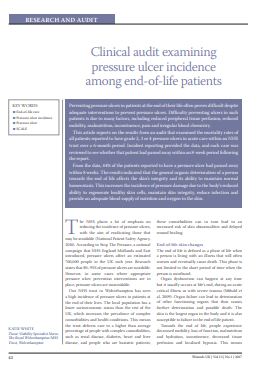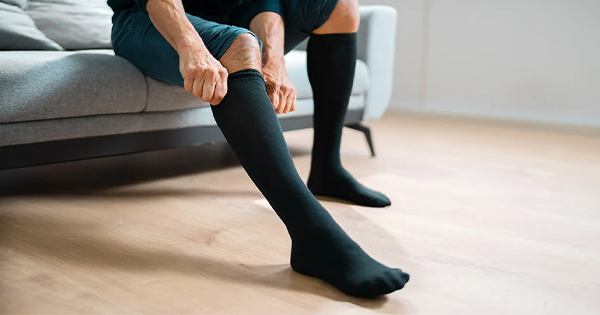Preventing pressure ulcers in patients at the end of their life often proves difficult despite adequate interventions to prevent pressure ulcers. Difficulty preventing ulcers in such patients is due to many factors, including reduced peripheral tissue perfusion, reduced mobility, malnutrition, incontinence, pain and irregular blood chemistry. This article reports on the results from an audit that examined the mortality rates of all patients reported to have grade 2, 3 or 4 pressure ulcers in acute care within an NHS trust over a 6-month period. Incident reporting provided the data, and each case was reviewed to see whether that patient had passed away within an 8-week period following the report. From the data, 44% of the patients reported to have a pressure ulcer had passed away within 8 weeks. The results indicated that the general organic deterioration of a person towards the end of life affects the skins integrity and its ability to maintain normal homeostasis. This increases the incidence of pressure damage due to the bodys reduced ability to regenerate healthy skin cells, maintain skin integrity, reduce infection and provide an adequate blood supply of nutrition and oxygen to the skin.





